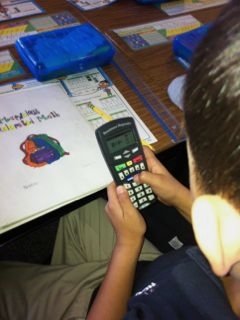Technology: To teach or not to teach?

Lately, I have been struggling with the concept of technology in schools and to what extent we should focus on teaching it. In my opinion, technology is a tool, much like a pencil, and although I don’t have a specific recollection of learning to use one, I’m sure someone once taught me. Granted, technology is a bit more complex than a pencil, but it is still just a tool. So, while I realize that many students still have much to learn about using technology, many are coming to school with the tech skills that they need. I think technology should/must be taught in the classroom within the context of content areas. It should be an integral part of the school culture with an expectation that teachers and students use it.
In my district, technology proficiency is a graduation requirement. For graduating classes prior to the class of 2015, this requirement was met by the completion of a course (minimum 1 quarter), demonstration of proficiency through a project, or by an assessment. Students had to show their proficiency with the following: word processing, presentations, spreadsheets, databases, and Internet searches. Beginning with the graduating class of 2015, however, students must meet this requirement by passing a technology literacy assessment, which is first administered in 6th grade and repeated until passed. This assessment has not been effective to date - many students aren't becoming technologically literate and/or the content on which they are being assessed isn't transferring to other areas. Our district is now moving towards a 6th grade technology project. Is this requirement necessary? Do students need to prove their technological literacy in the areas mentioned above? Why are we requiring this of our students but not our teachers? Are we preparing our students for the 21st century workplace by this requirement? Some districts require that all students take one online class prior to graduation. Is that a solution? If the answer to many of these questions is unclear, we should consider a shift in our definition of “technologically literate.” What skills best support our students in their current world and future employment? I am curious about what you think - should technology be taught and assessed in schools? If so, to what extent should this happen? And, if proficiency is a requirement for graduation, how can it best be measured? What skills are most important?
Jenith works full time for Newport-Mesa USD as the Director of Education Technology, working closely with K-12 administrators, teachers, students and parents and supporting them with technology integration. She also teaches in the Masters of Learning technologies (MALT) Program at Pepperdine University. Recently, Jenith completed her Ed.D in Educational Technology also at Pepperdine University. She sits on the board of the Down Syndrome Foundation (DSF) and Newport Mesa Administrator's Association (NMAA). She is a member of the following organizations: ISTE, CUE, ACM, AERA. In her spare time, she works with her sister to run their non-profit foundation, Down Syndrome Foundation of Orange County and hangs out with her three Labrador Retrievers.
Tools and ideas to transform education. Sign up below.
